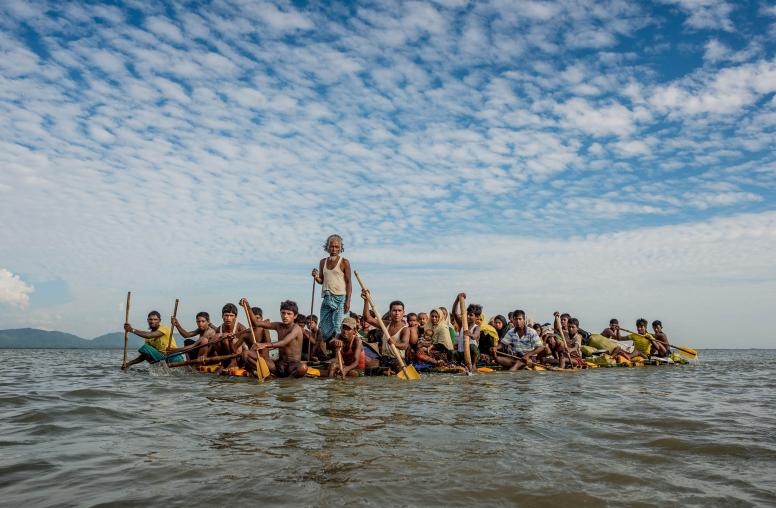The Arakan Army in Myanmar: Deadly Conflict Rises in Rakhine State
Armed conflict in Myanmar’s Rakhine State between the Arakan Army and the Tatmadaw, the national army, has escalated sharply in the past two years. This development has been largely eclipsed, however, by the continuing international focus on the human rights crisis of the Rohingya Muslim minority. As this report explains, if this new conflict continues to expand in scope and ferocity, the hope of repatriating Rohingya refugees will recede into the future and the rest of the country will suffer from the increasing violence and destabilization.

Summary
- Myanmar’s most serious conflict in many decades has emerged in Rakhine State between the Myanmar armed forces (Tatmadaw) and the Arakan Army (AA), demanding self-determination for the Buddhist Rakhine ethnic minority. It leaves Rohingya refugees with little chance of a safe return.
- The AA’s guerrilla tactics have caused many military and civilian casualties, evoking a typically fierce armed response from the Tatmadaw and compounding the human and physical damage.
- The AA’s sophisticated communications strategies use social media to swell its recruitment base, build civilian support, trade insults with the Tatmadaw, and reach an international audience.
- Government efforts to marginalize and demonize the AA are counterproductive with the Rakhine population, hardening attitudes and narrowing possibilities for political solutions. This conflict will continue to escalate absent the AA’s inclusion in the peace process, sending Rakhine State into a downward spiral that could seriously damage the rest of the country.
- With strategic investments to protect in Rakhine’s Kyaukphyu port, influence on other armed groups, and an interest in the peace process, China is the only external player that can influence the AA.
About the Report
In the most serious conflict currently active in Myanmar, the Arakan Army, a Buddhist Rakhine ethnic minority insurgent group, is fighting the Myanmar security forces. This report, commissioned by USIP’s Burma program, explains why any hope for reconciliation and for the safe return of Rohingya refugees will require political negotiation and inclusion of the Arakan Army in the nationwide peace process.
About the Author
David Scott Mathieson is a Myanmar-based independent analyst working on conflict, peace, humanitarian and human rights issues, and the drug trade. From 2006 to 2016 he was the senior researcher on Myanmar for Human Rights Watch based in Thailand and Myanmar. He has contributed articles to the New York Times, Wall Street Journal, The Irrawaddy, Foreign Policy, and is a regular contributor to Asia Times.



